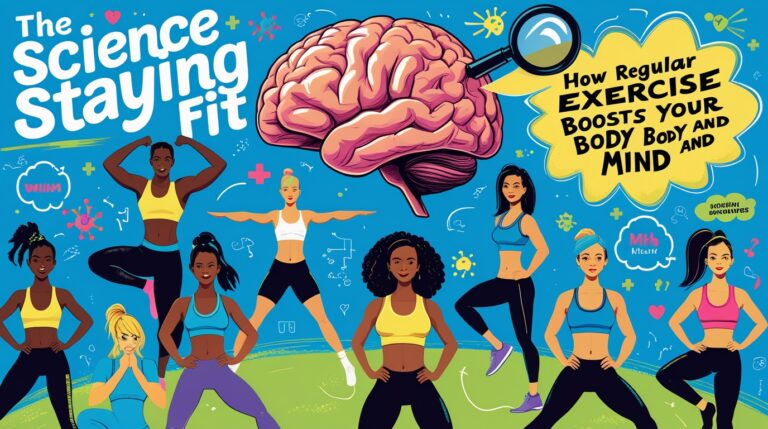Mental Health Awareness: Breaking the Stigma and Finding Support

Mental health is a cornerstone of overall well-being, yet it remains one of the most misunderstood and stigmatized aspects of health. With millions of people worldwide struggling with mental health issues, it’s essential to create awareness, break the stigma, and provide support for those in need.
This article explores the importance of mental health, common disorders, ways to recognize signs, and resources to seek help.
Why Mental Health Matters
Mental health is as crucial as physical health, impacting how we think, feel, and interact with others. It plays a significant role in:
- Managing stress.
- Building relationships.
- Making decisions.
- Leading a productive life.
Ignoring mental health issues can lead to severe consequences, including chronic illnesses, substance abuse, and even suicide. However, with the right support and resources, individuals can recover and thrive.
Breaking the Stigma Around Mental Health
Despite progress in mental health advocacy, stigma remains a significant barrier to seeking help.
What is Mental Health Stigma?
Stigma refers to negative attitudes or beliefs about people with mental health issues. It can lead to:
- Discrimination in workplaces and communities.
- Fear of judgment, causing people to hide their struggles.
- Delayed or avoided treatment.
The Importance of Breaking the Stigma
✔ Encourages Open Conversations: Talking about mental health normalizes it.
✔ Promotes Early Intervention: Reduces hesitation to seek help.
✔ Fosters Supportive Communities: Encourages empathy and understanding.
How to Break the Stigma
- Educate Yourself and Others: Learn about mental health conditions and their impact.
- Use Supportive Language: Avoid labels like “crazy” or “weak.”
- Share Personal Stories: Open up about your own experiences to inspire others.
- Advocate for Policies: Support workplace mental health programs and anti-discrimination laws.
Recognizing Common Mental Health Disorders
Understanding the signs of mental health issues is the first step toward helping yourself or others. Here are some of the most common disorders:
1. Anxiety Disorders
These include generalized anxiety disorder (GAD), panic disorder, and phobias.
Symptoms:
- Constant worry or fear.
- Restlessness or fatigue.
- Difficulty concentrating.
- Rapid heart rate or sweating during stressful situations.
2. Depression
Depression affects mood, energy, and daily functioning.
Symptoms:
- Persistent sadness or hopelessness.
- Loss of interest in activities once enjoyed.
- Changes in appetite or sleep patterns.
- Thoughts of self-harm or suicide.
3. Bipolar Disorder
Characterized by extreme mood swings, including manic and depressive episodes.
Symptoms:
- High energy, reduced need for sleep (mania).
- Periods of sadness or lethargy (depression).
- Impulsive or risky behavior during manic episodes.
4. Post-Traumatic Stress Disorder (PTSD)
Develops after experiencing or witnessing a traumatic event.
Symptoms:
- Flashbacks or nightmares.
- Avoiding reminders of the trauma.
- Hypervigilance or feeling “on edge.”
- Emotional numbness.
5. Eating Disorders
Conditions like anorexia nervosa, bulimia, and binge eating disorder.
Symptoms:
- Obsession with body weight or food.
- Restricting or overeating.
- Physical symptoms like hair loss or fatigue.
6. Schizophrenia and Psychotic Disorders
These involve distorted thinking, perception, and behavior.
Symptoms:
- Hallucinations or delusions.
- Disorganized speech or behavior.
- Difficulty distinguishing reality from imagination.
Recognizing these signs early can prevent conditions from worsening and enable individuals to seek help promptly.
Resources for Seeking Help

If you or someone you know is struggling with mental health, it’s essential to know that help is available.
Professional Support
- Therapists and Counselors: Provide talk therapy to address emotional issues.
- Psychiatrists: Medical doctors who can diagnose conditions and prescribe medication.
- Support Groups: Offer a safe space to connect with others facing similar struggles.
Helplines and Crisis Resources
- National Suicide Prevention Lifeline: Available 24/7 for those in crisis.
- Crisis Text Line: Provides support via text messaging.
- Local Helplines: Many countries have mental health hotlines for immediate assistance.
Self-Help Strategies
While professional help is crucial, self-care plays a vital role in managing mental health.
✔ Practice Mindfulness and Meditation: Reduces stress and improves emotional regulation.
✔ Stay Active: Exercise releases endorphins, boosting mood.
✔ Maintain a Healthy Diet: Nutrition impacts brain function and energy levels.
✔ Establish a Support System: Reach out to friends or family for emotional support.
Overcoming Barriers to Seeking Help
Many people hesitate to seek help due to fear, lack of resources, or misconceptions about mental health.
Common Barriers
- Fear of judgment or discrimination.
- Belief that the problem isn’t “serious enough.”
- Financial constraints or lack of insurance coverage.
How to Overcome Them
- Educate Yourself: Understand that mental health is a legitimate health concern.
- Start Small: Talk to someone you trust or join an online support group.
- Look for Affordable Options: Many organizations offer low-cost or free mental health services.
The Role of Society in Supporting Mental Health
Creating a mentally healthy society requires collective effort from individuals, organizations, and governments.
For Individuals
- Be empathetic toward others.
- Avoid judgment and offer support.
- Encourage open conversations about mental health.
For Workplaces
- Provide mental health resources, such as employee assistance programs (EAPs).
- Promote work-life balance to reduce stress.
- Offer training to managers on recognizing signs of mental health struggles.
For Governments and Organizations
- Increase funding for mental health programs.
- Implement anti-discrimination policies.
- Expand access to affordable care, especially in underserved communities.
Final Thoughts
Mental health awareness is more than a movement; it’s a necessity for a thriving, empathetic society. Breaking the stigma, recognizing signs of mental health issues, and seeking help are vital steps toward a healthier, happier life.
Remember, mental health struggles are not a sign of weakness—they’re a part of being human. If you or someone you know is struggling, don’t hesitate to reach out for support.
Together, we can create a world where mental health is valued as much as physical health—a world where everyone feels empowered to seek help without fear or judgment.

Are you ready to take the first step? Start the conversation today and be part of the change.






